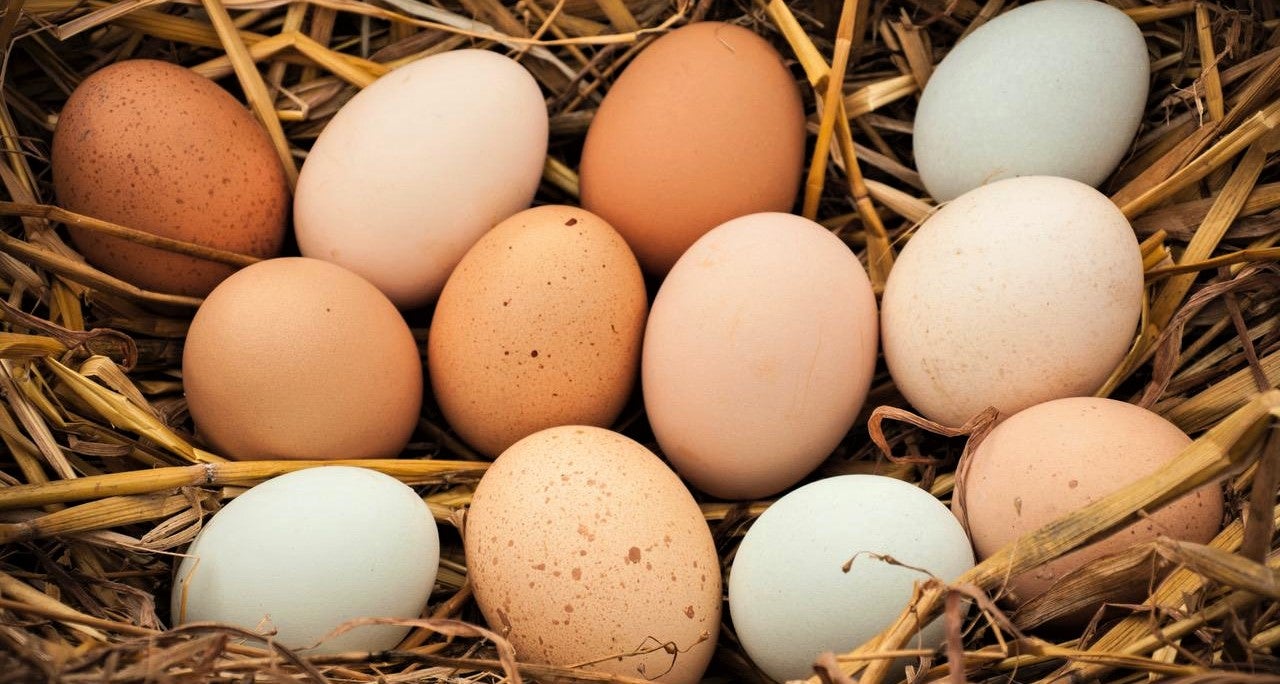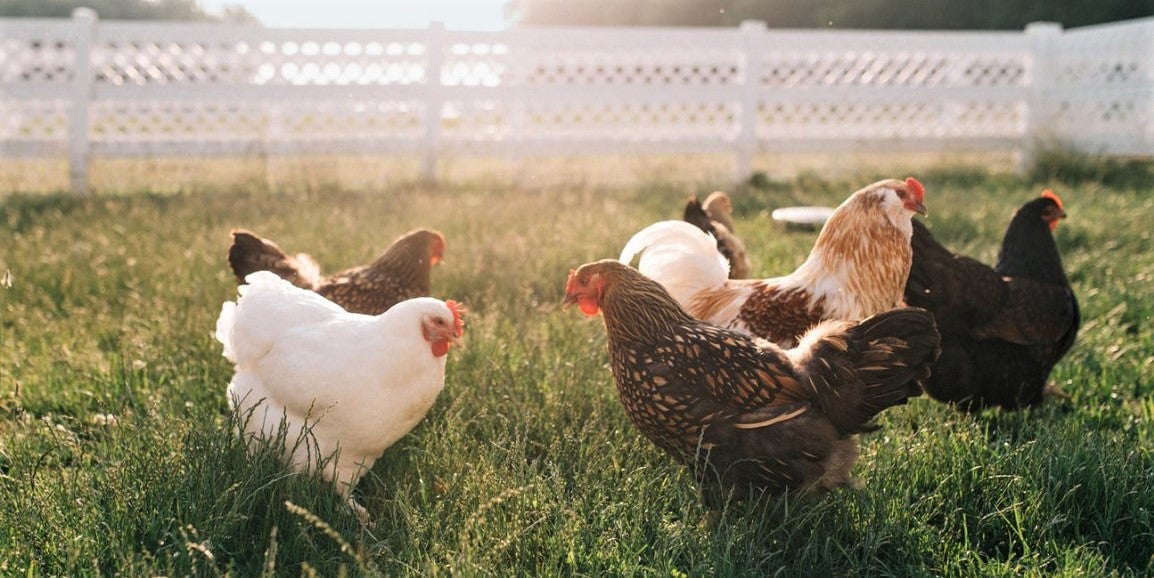Why Restaurants are Serving Eggs with Dark Yolks
We all know that eggs come in different sizes, and it won’t be so unusual to see a variety of different colors within your egg cartons, either. You might see some that are bright white, some a light shade of brown with small dark spots, and you’ll find plenty of the light beige shade we all come to expect of these gooey, nutritious superfoods. Packed full of so many health benefits and a variety of different minerals, they’re known as “nature’s multivitamin” for good reason – and restaurants love them for their versatility, as you cook an egg just about any way you like. Boiled, scrambled, mixed into fried rice, made into an omelet, poached or fried, eggs offer plenty of variety to appease every kind of taste and preference.
But it’s not just the eggshells that come in different colors, but the yolks as well, ranging from a light yellow shade to a darker mustard or amber color. Like with many foods, the color of egg yolks tells you quite a lot about where it came from and the quality you can expect from its taste and texture. Just as organic tomatoes that more closely resemble the dark red of a traffic light will have a fuller, richer flavor, egg yolks with a darker shade of orange will give you a creamier, more flavorsome egg and a larger dose of vitamins and omega-3s.
It’s a no-brainer, then, as to why restaurants would want these succulent, nutritious eggs in their larders. With growing interest among more health-conscious, millennial consumers to source organic and sustainable produce, it's no surprise that demand for pasture-raised eggs has been on the rise lately. Customers want to know where their products have come from and the living conditions of the animals that produced them - and a darker egg yolk is just about the best indication of quality you could want. But why exactly are these yolks better than run-of-the-mill yellow yolks? Here’s everything you need to know.
What the difference in egg yolk color means
In a nutshell – or, rather, an eggshell – a darker egg yolk will be better for you, and will have come from a chicken that has enjoyed a better life than a battery hen, cooped up in a cage with little exercise and a poorer-quality diet. Beside the moral implication of purchasing eggs laid by pasture-raised hens, which are free to roam around a large expanse of grassy space and go exploring for their lunch, this better quality of life for the hens actually produces a proportionately higher quality of eggs.
If a hen enjoys a relatively stress-free and comfortable existence, they will typically lay eggs with a darker, more vibrant orange color. This richer shade of yolk is a reflection on the diet of the hens who laid that egg, with the standard diet of pasture-raised hens comprising worms, grasshoppers, and plenty of fresh grass, all rich in carotenoids. These organic pigments are responsible for the vibrant colors we find in tomatoes, pumpkins, salmon, and carrots – naturally – as well as plenty of other foods, and are the primary cause of those brighter egg yolks. As an added bonus, carotenoids have been proven to provide significant antioxidant properties, which can prevent blindness in old age.

You can see the correlation here: happier, more adventurous hens get to find their own lunch, and all the natural elements within that diet contribute to the enhanced coloration of their eggs. There is also scientific research to suggest that darker, amber-colored egg yolks contain higher concentrations of vitamins and omega-3s as a result of the more varied diet enjoyed by pasture-raised hens. If you’re an independent farmer and really wanted to treat your hens, you can also sprinkle some chia seeds into their feed, as this has also been proven to darken egg yolks.
Customers can see the difference
With the growing awareness of sustainable farming, there have been so many trends emerging within restaurants lately, from plant-based meats to the increasing demand for regional farm-to-fork supply chains that drastically cut down on journey distances and reduce carbon emissions. As such, customers are becoming more and more tuned-in to the effect their diet has on the environment and are striving for ways to mitigate the damaging effects of the food industry. The reputation of a restaurant can be greatly enhanced by embracing a more sustainable supply of fresh ingredients, and purchasing eggs with amber yolks is one of the best ways to prove your commitment to more thoughtful food supply.
Besides the fact customers will be able to taste the difference in quality that comes from free-range eggs, they will literally be able to see the difference when an order of sourdough toast and fried eggs comes to their table. The large, dark yolk in the middle of their plate will be as good an indication as any that the restaurant they are eating in has sourced their eggs from happier, healthier hens, who are well-fed and comfortable enough to produce the best-quality eggs possible. The benefits here are of course twofold: not only will you have satisfied customers enjoying richer and more flavorsome eggs, but your commitment to animal welfare reflects strongly on the ethos of your business.
There is an added business incentive here, too: consumers are typically willing to pay a higher premium for organic ingredients. Just as customers will happily pay more for a bag of organic tomatoes at a local market - because they recognise the increase in quality they will be getting for this higher fee - so too will diners feel more willing to pay a little extra for their meal if they it has been made with fresh, high-quality produce. In more ways that one, it pays to be environmentally and ethically conscious when supplying your organic produce.
Free range eggs are better for you
There a lot of good reasons to steer clear of buying battery eggs. The principal push factor is that the hens which laid them often live short, anxious existences, worsened by the trauma of having their beaks trimmed to prevent them from attacking the other hens in their immediate vicinity. The caged hens are also fed a cheap, additives-laden diet with color enhancers that attempt to unnaturally darken the shade of their egg yolk. While there are some moderate benefits within these additives, such as vitamin-C traces in the orange peel scraps they are given alongside the algae and marigold flowers, these pale in comparison to the bugs- and seeds-rich foods consumed by free-range hens.
The omega-3 fats from which those hens benefit also find their way into the eggs you're customers will be eating, so there is a lot of good to be gained in eating eggs laid by hens with a healthier diet. A higher intake of fat-soluble vitamins, such as vitamins K, D, and E, will ensure they are transferred from producer to consumer; some studies have even suggested that pastured eggs provide twice the amount of vitamin E and almost 40% more vitamin A than battery eggs.
Local farmers provide the best-quality eggs

Independent, local farms are your best bet for supplying premium-quality, nutrient-laden eggs with rich amber yolks. This is because they provide the most amount of pasture space for their hens to roam around in, offering a greater ratio of space-to-hen volume thanks to the smaller scale of their business operation. Large-scale farms need to meet the demand of their consumers and thus need more hens, averaging 2 square feet of roaming space for even supposedly pasture-raised eggs. Small farms can give their hens up to 50 square feet of roaming space, thanks to their smaller population of hens, giving them a happier and more adventurous life.
Buffalo Market has built itself as a business on the close, long-standing relationships it enjoys with local California farmers, and it is through these relationships that we are able to provide your restaurant with the freshest organic produce at competitive prices. Within our inventory of more than 2,600 market-quality ingredients, we have 180-egg cases of free-range and pasture-raised eggs, on sale for as much as three times less than the comparable retail price.
Giving you gorgeous, creamy eggs laid by hens with up to 50 acres of open pasture to roam around in – 25 times that of the industry standard – we’re offering you amber-yolk eggs for just $2 a dozen. Try some today and see how your restaurant's customers will taste the difference.


